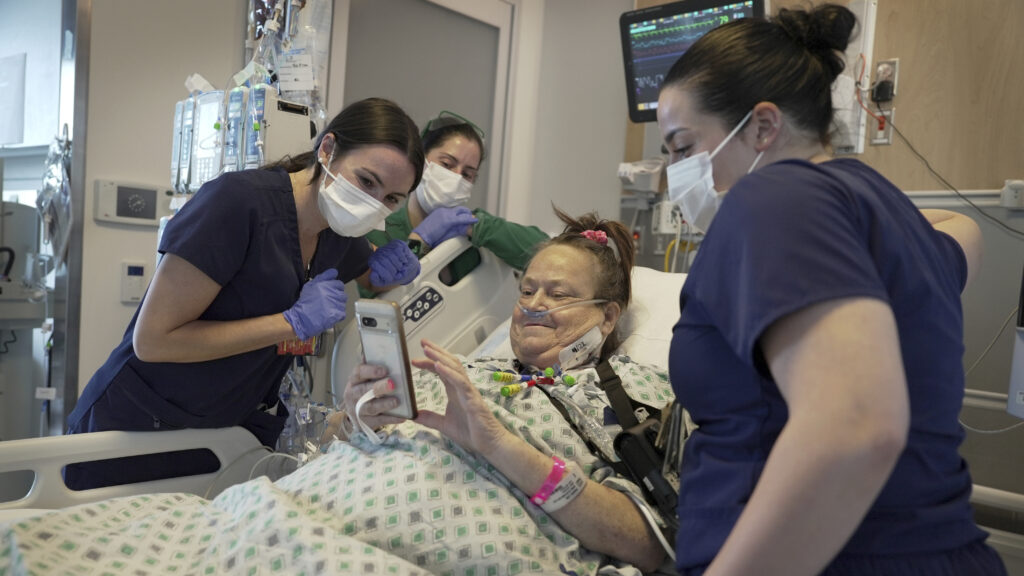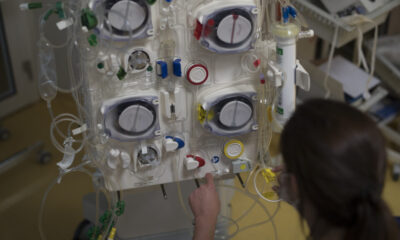Health
Woman returns to dialysis after doctors remove transplanted pig kidney

WASHINGTON – A woman who underwent a pig kidney transplant was back on dialysis just 47 days later after surgeons removed the gradually failing organ.
Lisa Pisano became the second person to receive a kidney from a genetically engineered pig, and NYU Langone Health announced she is stable after surgery to remove the organ earlier this week.
The first patient to undergo a pig kidney transplant, Richard “Rick” Slayman at Massachusetts General Hospital, died in early May, almost two months after his transplant. Doctors there said there was no evidence he died as a result of the experimental transplant.
Pisano’s heart and kidneys failed when doctors implanted a mechanical pump to keep her heart beating, and then the pig’s kidney, during a pair of dramatic operations in April.
Initially she seemed to be recovering well. But Dr. Robert Montgomery, who led the transplant, said there were “unique challenges” in managing both the heart pump and the new kidney. Her blood pressure dropped several times too low for optimal blood flow to the kidneys.
The kidney lost function until doctors stopped giving her immune-suppressing drugs, Montgomery said in a statement Friday.
A recent kidney biopsy showed no signs of rejection — the biggest concern in highly experimental animal-to-human transplants — but there was “significant damage” from insufficient blood flow, he said. NYU will further study the explanted kidney to gain more insight into how it responded in a living person.
Montgomery noted that Pisano was not a candidate for the life-extending heart pump during dialysis, and that her heart disease in turn prevented a traditional kidney transplant.
“We hope to get Lisa home to her family soon,” he said. “Her strength and courage in the face of adversity inspires and drives us as we continue to pursue the hope and promise of xenotransplantation.”
Pisano told the Associated Press in April that she knew the pig kidney might not work, but “I just took a chance. And you know, worst case scenario, if it didn’t work for me, it might have worked for someone else.
More than 100,000 people are on the U.S. waiting list for transplants, most needing a kidney, and thousands are dying while they wait. Hoping to fill the shortage of donated organs, several biotech companies are genetically modifying pigs so that their organs become more human-like and less likely to be destroyed by humans’ immune systems.
Formal investigations into such bodies are expected to begin next year. Meanwhile, NYU and other research teams have temporarily transplanted pig kidneys and hearts in brain-dead bodies, with promising results. In addition to the Mass General pig kidney transplant, the University of Maryland transplanted pig hearts into two men who had no other options, and both died within months.
– Lauran Neergaard











